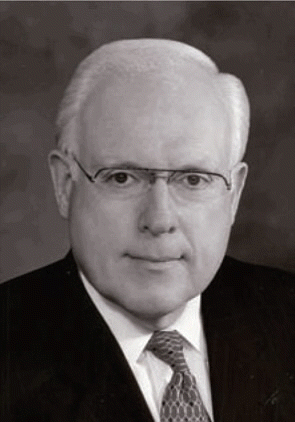An in-depth national study needs to be conducted to distinguish the effects of fatigue points, said Dr. Healy, the current President of the ACS, and the first otolaryngologist to hold that position. We know that fatigue points differ between individuals, and medical providers may not fatigue as easily as surgeons due to physicians’ ability to accomplish tasks in ways other than in direct patient care.15
Explore This Issue
November 2008According to Dr. Johns, There are potential loopholes in the 80-hour workweek as it pertains to otolaryngology programs. Most otolaryngology residents take home call, which does not count toward total duty hours unless they are physically called into the hospital. However, residents may be paged numerous times throughout the night, disrupting sleep.
Outside the United States, otolaryngology and other surgery and medical specialties are likewise engaged in these ongoing discussions. At end of the pipeline, said Dr. Sachdeva, it is imperative to scrutinize the knowledge and skills of residents graduating from training programs with fewer work hours than in the US and their preparation for independent practice.
 An in-depth national study needs to be conducted to distinguish the effects of fatigue points. We know that fatigue points differ between individuals, and medical providers may not fatigue as easily as surgeons due to physicians’ ability to accomplish tasks in ways other than in direct patient care.
An in-depth national study needs to be conducted to distinguish the effects of fatigue points. We know that fatigue points differ between individuals, and medical providers may not fatigue as easily as surgeons due to physicians’ ability to accomplish tasks in ways other than in direct patient care.-Gerald Healy, MD
To produce the same product-that is, the competent and skilled surgeon-there would be no choice but to lengthen the duration of training, and that presents several huge problems. Funding is one. Longer training time, especially for subspecialties, would also lead to workforce shortages and to discouraging bright people from entering surgical specialties.
The IOM is currently reviewing data and receiving input from physicians and surgeons across the country as well as abroad. The ACS has distributed its report widely to all department chairs, program directors, CEOs, and specialty societies. The response has been extremely positive and readers appreciate the balanced view that is presented.
A well-organized national study with multiple arms conducted in multiple centers must be undertaken to truly answer some of these questions, said Dr. Healy. Without addressing these issues scientifically, we are jerry-rigging an old system to fit new needs.
In addition, said Dr. Johns, Both private and public payers need to recognize the importance of academic health centers in training the physicians of tomorrow. It is more expensive to operate academic health centers with teaching programs, and payer reimbursement should be commensurately higher to account for this.
ACGME Restrictions on Resident Work Hours
- Limitations of duty hours to 80 hours per week (an average for a four-week period; possible increase after approval by the Residency Review Committee)
- One day free in seven (averaged over four-week period)
- In-house call no more frequently than every third night (averaged over four-week period)
- 24-hour limit of on-site duty (with up to six-hour extension for certain activities)
- No new patients may be accepted after 24 hours of continuous duty
- Minimum 10 hours rest break between duty periods
- Callbacks to hospital during at-home call must be counted
References
- Accreditation Council for Graduate Medical Education. Report of the ACGME Work Group on Resident Duty Hours. Chicago, 2002.
[Context Link] - Brunworth JD, Sindwani R. Impact of duty hour restrictions on otolaryngology training: divergent resident and faculty perspectives. Laryngoscope 2006;116:1127-30.
[Context Link] - Chandra RK. The resident 80-hour workweek: how has it affected surgical specialties? Laryngoscope 2004;114:1394-8; discussion 19.
[Context Link] - Gelfand DV, Podnos YD, Carmichael JC, Saltzman DJ, Wilson SE, Williams RA. Effect of the 80-hour workweek on resident burnout. Arch Surg 2004;139:933-40.
[Context Link] - Hutter MM, Kellogg KC, Ferguson CM, Abbott WM, Warshaw AL. The impact of the 80-hour resident workweek on surgical residents and attending surgeons. Ann Surg 2006;243:864-71; discussion 71-5.
[Context Link] - Kupferman TA, Lian TS. Implementation of duty hour standards in otolaryngology-head and neck surgery residency training. Otolaryngol Head Neck Surg 2005;132:819-22.
[Context Link] - Parthasarathy S. Implementation of the 80-hour work-week limitation for residents has improved patient care and education. J Clin Sleep Med 2006;2:14-7.
[Context Link] - Reiter ER, Wong DR. Impact of duty hour limits on resident training in otolaryngology. Laryngoscope 2005;115:773-9.
[Context Link] - Volpp KG, Rosen AK, Rosenbaum PR, et al. Mortality among patients in VA hospitals in the first 2 years following ACGME resident duty hour reform. JAMA 2007;298:984-92.
[Context Link] - Volpp KG, Rosen AK, Rosenbaum PR, et al. Mortality among hospitalized Medicare beneficiaries in the first 2 years following ACGME resident duty hour reform. JAMA 2007;298:975-83.
[Context Link] - Golub JS, Weiss PS, Ramesh AK, Ossoff RH, Johns MM, 3rd. Burnout in residents of otolaryngology-head and neck surgery: a national inquiry into the health of residency training. Acad Med 2007;82:596-601.
[Context Link] - Sachdeva AK, Bell RH, Jr., Britt LD, Tarpley JL, Blair PG, Tarpley MJ. National efforts to reform residency education in surgery. Acad Med 2007;82:1200-10.
[Context Link] - Sachdeva AK. Acquiring skills in new procedures and technology: the challenge and the opportunity. Arch Surg 2005;140:387-9.
[Context Link] - Sachdeva AK. Surgical education to improve the quality of patient care: the role of practice-based learning and improvement. J Gastrointest Surg 2007;11:1379-83.
[Context Link] - Ericsson KA. Deliberate practice and the acquisition and maintenance of expert performance in medicine and related domains. Acad Med 2004;79(10 Suppl):S70-81.
[Context Link]
©2008 The Triological Society
Leave a Reply